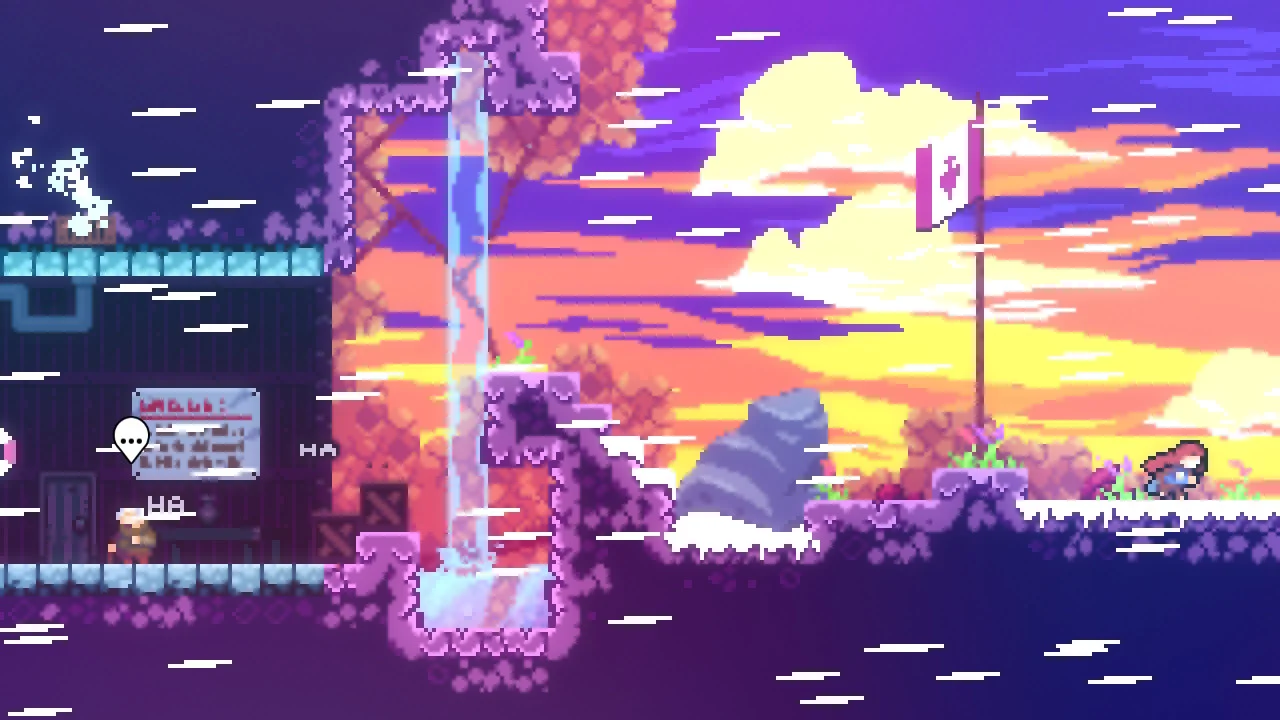Difficulty Discussion: Hating the games you play
Question: How angry do you like to get at your games?
When I'm playing Magic Arena, I find that I am able to tolerate quite a bit of pain. Not only do I lose a lot, but often the losses are annoying – I misplayed, or I lose to a strategy or card that I hate.
For a good example, there was an infamous deck during quarantine called the Cat Oven that ended up dominating the field due to balance issues, and so for weeks and weeks pretty much everybody was playing it.
As you can see, it's a vicious 2-card combo that starts working on turn 2, and it would not be so annoying to play against (or with) over tabletop, BUT online the computer forces each player to click agonizingly through each and every trigger of each and every ability, passing priority back and forth again and again, so that the simple process of "i'm gonna kill my cat with the oven and then bring it back," takes like 9 clicks and 8 seconds to actually occur. And notice that's only to deal 1 damage. So it's an awful slog either to win or to lose like this, guaranteed, every time.
Add to that that Arena has some real competitive formats, which are great at heaping on extra stress.
But when I was playing Assassin's Creed: Valhalla the other day, and I was killed for the first time in a boss fight, I became instantly furious and immediately went to lower the difficulty setting – all the way down if I needed to. I had run out of patience with that boss battle at the very first loss, and I was not at all interested in trying it again. I have come to realize that I was not interested in being angry at THAT game. Assassin's Creed games I play for happy feelings exclusively, it turns out.
I ended up being angry for a while longer, though, because you aren't allowed to change the difficulty during the mission, only at the end of which was waiting the boss. So when I restarted the thing I very grumpily ran past all of the enemies leading up to the boss fight, ignoring absolutely everything, until I got to the boss. Then I pounded the "skip cutscene" button with gritted teeth until the fight started, and at that point I actually just had to do better to kill the guy.
And I hated every minute of it. If I could've skipped the fight and gone right on, I would've.
Here's another fun card.
So now I'm curious what your gaming anger preferences are like these days. I have distant memories of both Mike and Luke being very angry at video games they were playing, but also quite determined to continue playing them. Less of that for Patrick.
I would imagine that skill-based fighting games like Street Fighter would incur player wrath naturally, whereas the Nintendo Switch's Legend of Zelda: Super Mario Pokemon Garden Party Island (or whatever it is these days) would probably not.
The last time I was super mad playing a video game was probably my last go at Xbox Live when I was playing a lot of Rainbow Six. The competitive aspect can be frustrating on its own since there are a lot of very good players online, but what really sends me over the edge is the toxic culture that sprouts up around these games.
Rainbow Six Siege
Even when you turn off all the mics, there is a system in Rainbow Six that allows any member of your team to initiate a vote to kick out any other member of the team. So you will frequently find yourself being booted from a match seemingly at random, or more often you will get kicked out because you were the last surviving team member in a round and failed to single-handedly kill the entire other team and win. They call it “clutch or kick”, and it often means you’re being punished for having played the best out of your teammates.
Lately though, I really stick to one-player games. It’s more relaxing to do some something at my own pace like fishing in Animal Crossing. Or when you abduct a lone camper in Red Dead Redemption, hog tie them, and drown them in a river. You know, just feel-good kind of stuff.
Well, I obviously don't play many games these days, so I'm not really sure what my tolerance would be lately, but it's surely much lower. The only games I have really played a fair amount of are The Messenger and Mario Odyssey.
In these two examples I can say that I certainly will spend a lot of time and effort trying and retrying things, and enjoying it—which makes me think that I haven't completely lost my ability to put work into a game. Odyssey is obviously a very well designed game, with an addictive incremental reward system, and a balance of hard and easy and in-between challenges. I was surprised at myself for how motivated I was to get all of the moons and go back to finish each section.
The Messenger
With The Messenger, the game is a sort of old-school platformer, but you gain new abilities as you progress, which you need to master to keep progressing. There were a few parts that got a bit frustrating, but I think the real reason I haven't gotten farther with this game is that I simply can't tell where it's going. I was already vaguely aware that there is some kind of twist halfway through the game, and then you end up replaying some earlier areas. So it really started to wear on me as I kept grinding through levels, that—as far as I knew—I wasn't even halfway through the game. So it just started to feel like the game was going to take forever, that started to wear down my motivation to keep going.
I recently picked up Katana Zero, and I'm really excited about it, though I still haven't had any time to start it. I genuinely do get excited about reviews that say a game is really good but also really short. They usually mean that as a criticism, but nowadays I think I'd rather play a $15 game that takes 4 hours than a $60 game that takes 4 years.
I'm not saying I'm averse to a big game, but they all tend to look pretty formulaic. With big high-profile games, I’m wary that it’ll just be some generic plot through repetitive missions that feel more like grinding than a story.
Assassin's Creed Odyssey
Assassin's Creed: Odyssey was the worst of all of the AC games that I've played – and I've played most of them – because of exactly what you said, Mike. The game is intentionally near-infinite in length, and after you get your 12th "go over there and kill all the sharks" missions, I totally lost interest in the whole thing.
They've made some specific changes to Valhalla as a result of Odyssey’s failings, I think. Though it's a huge game, there's a much clearer picture of what all's going to go on here, and where you currently are in it. But it's still a little grindy, so given other options I’d gladly put it on the back burner, at least for a while.
For me, the topic of tolerating/persevering through pain in games has come up recently with some intentionally hard games that I still greatly enjoy playing...even though I repeatedly fail at them. The best examples of this are Celeste and Spelunky—both are 2D platformers, now that I come to think of it. I've also enjoyed many rounds of Tetris 99, even though I rarely come close to winning a game, and I've only finished in the top 10 players on a handful of occasions.
Celeste
At least with Celeste, I feel like the demanding, high-precision platforming fits perfectly within the game's premise of climbing a mountain. The very real struggle you feel playing through its challenge is core to the experience, and it makes the game's story land with more genuine impact. Plus the fact that checkpoints are extremely frequent, and you instantly restart after dying, means that your many, many failures aren't really punished. Failing is part of the process.
Spelunky 2 just came out in September and I've been absolutely obsessed with that game, despite the fact that I've never imagined I'd ever beat it (or the first Spelunky, for that matter). The game's world—which is greatly expanded on in the sequel—is just so much fun to explore and discover. Even if, you know, the difficulty is straight-up brutal and death sends you right back to the very beginning. Plus the levels are procedurally generated, so even if you only get to see the first cave area after multiple playthroughs, you're never really running the same level twice.
Spelunky 2
Recently I've also been playing two big PS4 games, SpiderMan: Miles Morales and The Last of Us Part II. It occurred to me that if either of these games decided to crank up the difficulty to Spelunky levels, I might drop them immediately.
I like it when games have things you can do on a side-quest that will end up changing your options during the main story. Although while cool in concept, I’ve rarely seen it executed well.
I'll never forget when my friend Adam couldn't stand how Final Fantasy IV (or was it VI?) gave him the choice to either get the Ragnarok spell or the Ragnarok sword. He played through the entire game again just to see what it was like to get the other option.
Now I realize this is a bit long, but it feels very relevant to this conversation. While it’s mainly about Spelunky 2, this video is actually also about difficulty (and accessibility) in games overall. The author calls Spelunky's approach "Granular Difficulty", which I think is an interesting concept.
That video was pretty interesting. And to a strange degree, much of the stuff he described about Spelunky is basically how I experienced Mario Odyssey.
You can find the right balance of difficulty since you have the freedom to play through how you want and chase or ignore the extra challenges and levels as needed. I was astounded at how much fun my kids had playing that game on their own once I had got them rolling. My 5-year-old got hours and hours of satisfying gameplay out of the same game that has some areas that I couldn't finish—or at least, I wasn't willing to put in the time to finish.
Screen cap - Super Mario Odyssey
And to his point about God Mode and the like, the two-player mode in Odyssey often times felt like cheating. The second player can simply control Cappy and do things that would extremely difficult using the one-player commands (e.g., hovering and diving to collect hard-to-reach coins around corners and ledges, or executing the Cappy double jump). Yet it was super fun for both of us to play this way, which we did through most of the game. With the predictable downside that I haven't really learned any of the advanced Cappy techniques that are necessary to achieve a lot of the higher difficulty tasks in one-player mode.
Also, when he was talking about Halo's legendary Legendary mode, it reminded me a lot of the original Street Fighter 2 on SNES. As you may recall, I was particularly bent on trying to beat the game with each of the 8 characters on the highest difficulty without losing a round. And I did manage it with 6 of them (I still think it's basically not possible with Dhalsim and Zangief).
Street Fighter II: The World Warrior
I eventually realized that, when dialing up the difficulty settings (from 1 to 8 stars), it doesn't really make the CPU AI characters smarter in how they play; it simply increases the disparities between you and them. It does this obviously by increasing the damage the CPU does while decreasing the same for you. But it also has a more subtle and frustrating effect of increasing your reaction times while decreasing the CPU reaction times, basically down to zero. Basic game mechanics, like how long you are effectively frozen when blocking an attack, are increased for you and decreased for the computer. So the only way to win is to basically learn how and when the AI will automatically do things, then to exploit those weaknesses repetitively, rather than to use otherwise good gameplay and fast reflexes.
So The Last of Us Part II had at least two boss fight-like moments that made me quite frustrated, at least momentarily. In these semi-scripted events, the player has to take very specific actions, and failure to do so results in instant death. The death animations themselves are also grotesquely violent, so much so that I found myself averting my eyes from the screen, just so I didn’t have to relive the horror each time. (Still hearing the screams was no picnic either.)
Ruins of Westlake Station - The Last of Us Part II
Ultimately I think it’s the lack of choice, the feeling of being pigeonholed into one course of action, that causes a lot of player frustration. It conflicts with the open-endedness of interactive media and stifles a player’s sense of freedom. Of course, failing to take the correct action, and then being forced to try it again and again, ramps up the aggravation so much more.
That said, I expect that when trying to tell a story in games, developers are basically required to steer events one way or the other. So perhaps it’s actually the cinematic storytelling which underlies a lot of the frustration in modern game design? Hard to say.
















